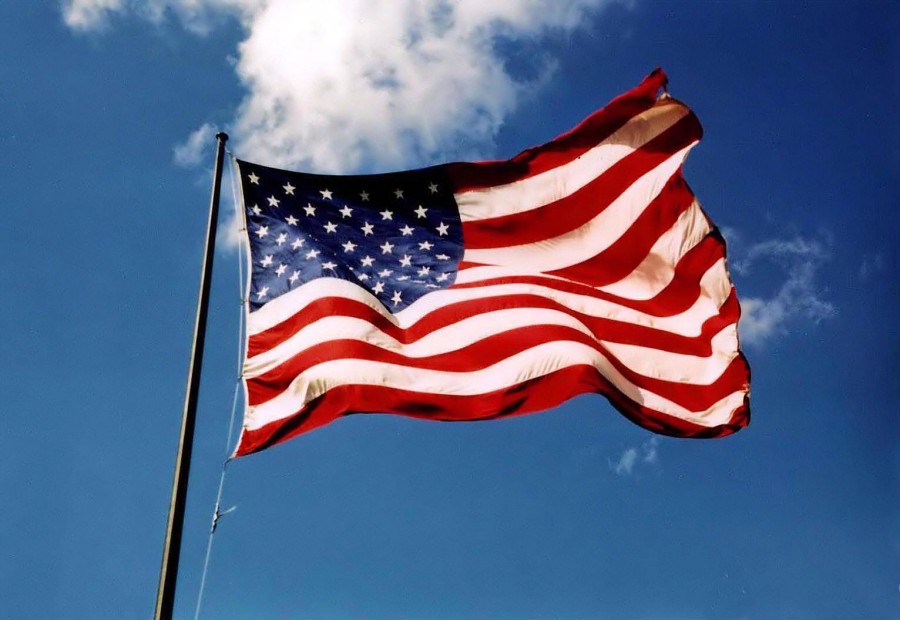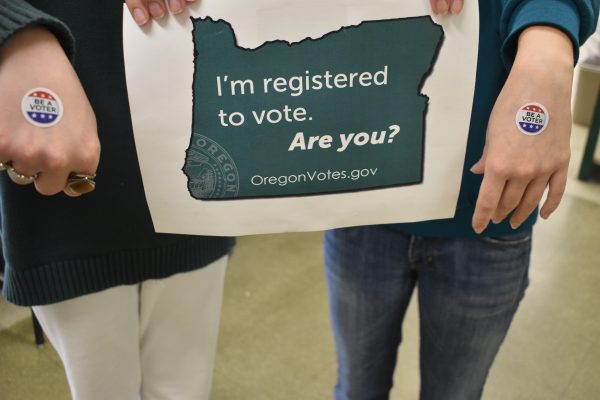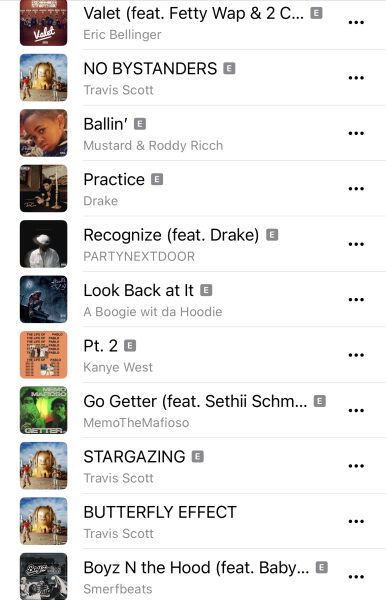Patriotism lacking among the student body
America is land of the free and home of the brave—but apparently not of the proud. After an earnest Vietnamese substitute raised this question to my fairly unpatriotic chemistry class, I had to know: Are Cleveland students proud of their country?
To put this to the test, I questioned 100 begrudging Clevelanders and produced shocking results. Unbeknownst to me, 47 percent of surveyors said they were not content with the conditions they are currently living under in the United States. Many expressed a concern with how our country tackles its prevalent issues, ranging from our problem with racism to sexual assault and harassment to the gender pay gap. Of course, all of these affairs are urgent matters in our society. Considering this, it’s not hard to imagine how these issues could have invoked such a deprecating view of America onto teenagers. Yet, when weighing the whole “liberty and justice for all” ideal set forth by our Founding Fathers, it’s difficult to understand this level of indisposition.
“I’m not overwhelmingly ashamed to be an American,” said senior Anna Del Savio, “but overall, I think that the United States turns a blind eye to everything we do wrong so that we can criticize other cultures.” Del Savio’s opposition is not off-target; many people are faithful and defensive of their countries simply because that’s where they live. Yet, some individuals were all too eager to share everything that’s wrong with our nation. “America is a disgusting country,” said sophomore Annabelle Schwartz. “The government does nothing about innocent black people being murdered by the police, big corporations ruin our environment, and one percent of the population has 99 percent of the wealth. People can work nine hour days and not earn a living wage, in many states (including Oregon) rapists are still allowed to sue for parental rights over the child that is a product of their sexual assault, and 90 percent of rapists will never spend a day in jail. If you believe that America is a fair and safe country to live in, you’re either a white, cis, straight male, or just ignorant.”
Schwartz brings up a lot of arresting points, and many seemed to agree with her. “Our history is one of stolen land, bloodshed, slavery, working class oppression, and patriarchy (to name a few),” said junior Marley Schlichting. “We see these things in effect today embodied by rape culture, institutionalized racism, and blatant disregard for the working class.”
While these counterarguments serve valid points, they are controversial themselves. Of course racism is a huge problem in our country. Ignoring that fact would be ignorant and injudicious. Yet, blaming white people for everything doesn’t accomplish anything. In fact, the hypocrisy of this idea is almost unbearable. The definition of racism is fairly self-explanatory: segregating and discriminating against a group of people based on the color of their skin. In spite of this, many seem to think that African-Americans are the only victims of racism, perhaps because of our history of brutality against them. The fact of the matter is, saying that white people are to blame for everything that’s wrong in America simply because they’re white is inherently racist itself. It’s still segregating groups of people based on their skin color. Whether that color is white, black, brown, tan, beige, cream, apricot, or mahogany, it’s still racism to stereotype or blame a group of people based on the color of their skin.
Many comments also seemed to be in favor of blaming law enforcement for all of America’s problems. There’s no doubt that there are some corrupt police officers out there, just as there are some fraudulent white people and black people and Asian people and Hispanic people and people of all different nationalities. Yet, they all share one thing in common: they’re all just people. People should be accounted for their actions, not for their races, professions, or commonalities. By blaming all police officers for what the nefarious ones did, you aren’t even coming close to solving the problems associated with police brutality. The only thing this mindset accomplishes is the perpetuation of this same kind of segregated culture that we are trying to eliminate.
Interestingly, many responses also objected to the system of women’s rights we have here in America. As a woman myself, I am disgusted that after more than a century of fighting for equality, women are still paid 78 cents to every dollar that a man makes. I would think that our country would have woken up by now and realized that this is discrimination and unconstitutional, yet we are still having to question this. As ridiculous as this is, thinking of other countries where women have no rights, are not allowed to vote, are raped freely without repercussions, and are punished for their male family members’ criminal acts, I don’t feel at all unfortunate to live in the country that I do. “When I lived in China for four years, I first experienced culture shock,” said sophomore Ya-Li Lizik. “I was adopted at the age of one there, and brought back to grow up in America. [I was shocked to find] the mindset of the Chinese people was so vastly different from western thinking…Women have restricted rights in China. Men are still valued higher than women. They think that women are ‘weaker’ than men…What I’ve realized from living in America is how fortunate I am to have grown up in country that allowed me to be who I am and think for myself.”
There are some countries that don’t even allow women to go to school, said Cleveland teacher Terry Hall. “I feel like living in America has given me a lot of opportunities, like to study science as a woman. That is not always available to people in other countries.”
No country is perfect. A nation cannot be held to a standard that exceeds human error; every country has done things in their pasts that they aren’t proud of. We all make mistakes and it’s important to remember that countries are run by humans, and therefore cannot be expected to achieve utopia. Knowing this, most countries are adaptable enough to learn from their mistakes. Granted, it might take a century or two, but countries will always be learning and evolving. Improvement is constant, as is development and sophistication, and America is not the same country it was during the Civil War or the Great Depression. We’ve grown as an effect from some of the things we’ve done and our country and people certainly have advanced in the last 150 years. We aren’t the same people that we were then. We can only be held responsible for the choices we make as individuals. Let those decisions tell us who we are.
“I think that America has accomplished some amazing things,” said junior Camille MacLean. But certainly, she stated, “The path to this success hasn’t come without a price.” Considering all of this, living in America has many immense benefits. For starters, our beliefs are protected by the government. How many countries can boast that statement? If our government wasn’t the way it was, you wouldn’t even be able to say that you didn’t like it.
Additionally, we have the right to pursue happiness and justice and say the things we want to without the government’s suppression. All of these rights are unalienable and protected by law. We are free to shape our lives in the way we want to, which by some countries’ standards is a major luxury, not a right. No one can deny that the values our country was founded upon—hope, liberty, opportunity, second chances, and freedom—are great ideals to live by. We have freedoms that people in some other countries can only dream about. “We stand for something that no others do: that of life, liberty, and the pursuit of happiness,” said sophomore Taylor Lewis. Anna Litchman, sophomore, stated, “I’m grateful for my freedom and my rights. We are very lucky to live in a country like this.” “This country represents [hope],” said economics teacher Anne Dierker. “You have the opportunity to grow and to move up [in this country].”
In the end, America has its ups and downs, but those who live here should feel fortunate that they do and proud of the principles for which our nation was founded. It is certain that our country is not perfect. We have surely done some heinous things in our past—atrocities for which we cannot ask forgiveness. Yet, Americans now should not be confined to the images that our ancestors created for us in their legacies, because we aren’t the same people who decided and agreed to these things. We need to remember our history, but we can’t take ownership of something that we had no say in or condemn ourselves for things we are not responsible for. We can choose our future, but we can’t change our past. The only thing we can do is remember it and learn from it. Let it make us better people.

Position within Newspaper: Editor-in-Chief, Content Editor, Copy Editor
Graduation year: 2017
Favorite thing to do: I am a passionate writer and...













